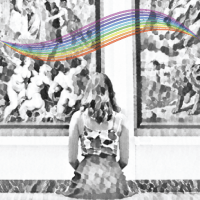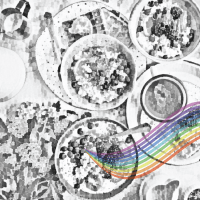- Atilla Tiriyaki
- Average Reading Time: 4 minutes
- Community
- articles, atillat
With over a quarter of the world’s LGBTQIA+ population living in countries where same-sex relationships are deemed illegal under the law, should there be a country that would act as a safe haven? A place that is welcoming and inclusive for members of the global community escaping persecution and an internationally recognised nation for all non-traditional sexual and gender identities
It is impossible to establish accurate statistics relating to the number of people living within any country identifying as LGBTQIA+. Typically, estimates will vary given that gender, and sexual identifiers are not generally featured in or asked as part of the censuses usually carried out every ten years. Suppose we use low and conservative estimates, let’s say 5%, based on the world’s total population. Using those estimates would mean that the LGBTQIA+ community would often be classified and considered a minority group in any given country.
The concept of a homeland for a minority group is not new, with many modern-day countries formed based entirely on the principle of unity and freedom for members of that given group. Identifying as LGBTQIA+ is not a person’s ethnicity, race or belief. However, unified with the desire for every person to be their true self and live free from persecution binds everyone across the global community together.
Though forming a new nation might be considered drastic, some might find the idea convenient, especially for those who want to ignore and brush aside gender and sexual identities. In this modern social media era, you will often see remarks from online trolls responding to members of the LGBTQIA+ telling them to leave and go and live all together. Though these comments are usually intended to silence and isolate, are there any merits to altogether? And how realistic is a nation as a proposition?

Nestled between Egypt and Sudan in Northern Africa are 800 square miles or 2,060 square kilometres, roughly the size of Rome is the unclaimed land known as ‘Bir Tawil’. Bir Tawil has a warm, moderate climate throughout the year and even has a coastline facing the Red Sea, south of the popular coastal resorts of Eilat (Israel) and Sharm El Sheikh (Egypt). Bir Tawil exists due to political boundaries. Neither Egypt nor Sudan had included the area while drawing up their country’s political boundaries resulting in the area becoming unclaimed. Bir Tawil has no inhabitants and is predominately made up of desert land; however, the land has potential. Over the years, people worldwide have travelled to this oasis to claim it. However, all claims have failed as none had lived in or resided within Bir Tawil before submitting their claim.
As I have called it, the free republic of Aparadiso would not be an excuse in rounding up the world’s LGBTQIA+ community. Instead, it would become a haven for those living in fear of persecution, whether they might be around the world. The concept of a homeland, free of discrimination, is a model that has worked before, consider modern-day Israel. Israel was officially formed after World War two for members of the Jewish faith, and anyone around the world that is of Jewish heritage can apply for citizenship under the law of return.

Why then could not Aparadiso become the homeland for the LGBTQIA+ community?
In 2019, it was estimated that the combined LGBTQIA+ community would have a GDP of 1.22 trillion US dollars. The equivalent GDP of many countries worldwide, meaning the tiny nation of Aparadiso, would have reasonable economic weight. With a potential population of up to 198 million, this new nation could be a role model for inclusion. It would be a new nation that offers citizenship to all that need it, regardless of gender, sexual orientation, race, or ethnicity. By no means is this article intended to undermine or play down the hard work and achievements of many that have fought hard over the years. All those pioneers and advocates worked hard to change the laws within their respective countries to benefit all living there. The sad reality, though, is that even with the progress made, there are still so many living in countries where being their true self could ultimately kill them. So, with the amount of persecution and discrimination that exists today, is the concept of Aparadiso that far-fetched?

More from Gayther
Discover all of the exciting and entertaining articles written by people from the worldwide LGBTQIA+ community, sharing their stories, opinions and experiences in their own style and from their unique perspectives










